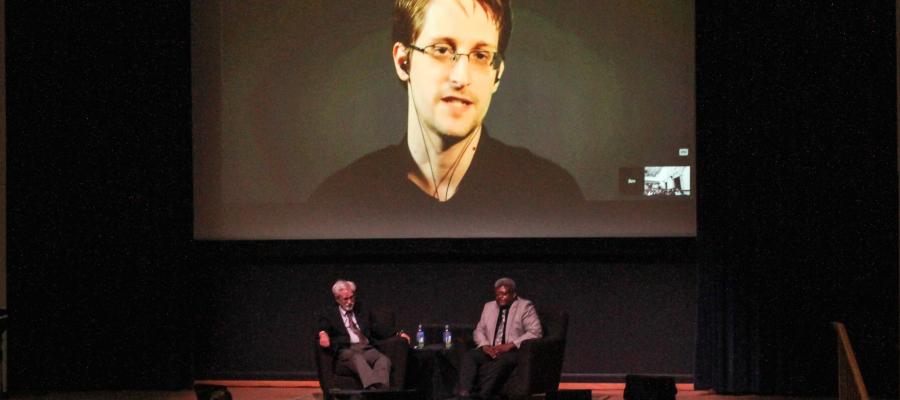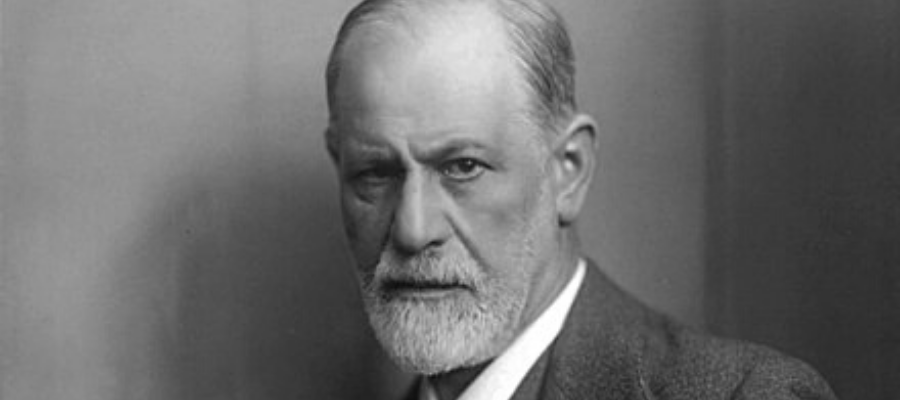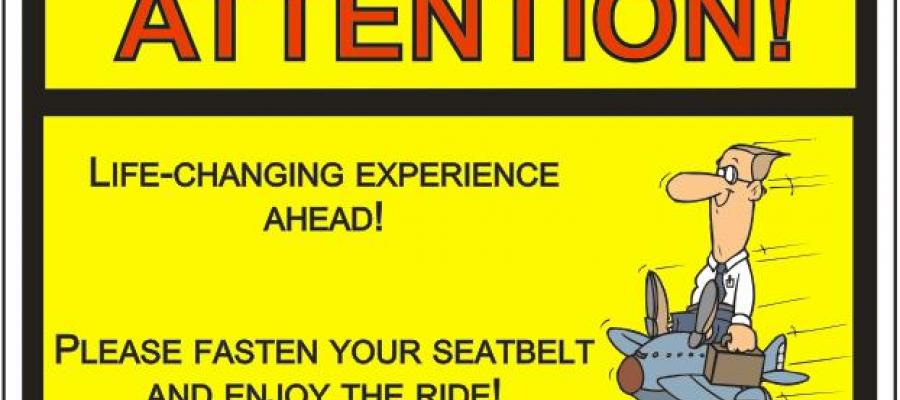Democracy and the Judiciary
09
Feb 2007
Today's episode is about the Judiciary and Democracy. Our guest will be Larry Kramer, Dean of the Stanford Law School. We're really looking forward to having Larry as our guest. Larry has been an agent of change since coming to Stanford. It used to be that the law school barely cooperated with the rest of the University. But under Larry's able leadership many good partnerships are being formed between Law and other arms of the university. For example, there are now joint PhD-JD programs in a number of...
Read moreA Simple Test for Fake News
25
Jul 2019
In 1729, Jonathan Swift published his satirical essay, “A Modest Proposal.” Ireland had already been under increasingly exploitative English occupation for over 500 years, and this fueled its severe suffering from poverty and periodic famine. So as a way of mocking the heartless, instrumentalizing attitude of the English and Anglo-Irish ruling classes, Swift suggested—in an appropriately genteel tone—that the solution to Irish poverty should be to sell their babies as food. Swift’s piece includes scathing lines like this: “a young healthy Child well Nursed is at a year Old, a...
Read moreThe Urbanist Delusion
02
Feb 2018
Since Amazon announced the search for its new urban headquarters, cities across the US have jumped at the opportunity, offering everything from tax breaks to municipal planning powers. In a bid to display their uniqueness, cities across the country have all touted the same set of assets—rich culture, beautiful parks, elite institutions of higher education, restaurants, and other identical hallmarks of urbanity. In this polemical critque, author Nikil Saval argues that Amazon has now bankrupted "the ideology of urbanism." So what was this ideology? What really draws people to live in a...
Read moreThe Value of Metaphor in a Pandemic
20
Jul 2020
Metaphors are some of the greatest tools of human expression. They let us expose rich textures of commonality between things. They let us in on fine shades and details that we might have otherwise missed in a situation. They can be remarkably forceful, they can stick around, they can have great emotional power, and they can bring us together in the way we see and conceptualize the world. For all these reasons, you might think metaphors have their place in global tragedy. Now more than ever, we need to communicate in expressive, emotive, vital ways, to bring us together. But rich...
Read moreRepugnant Markets
02
Jun 2018
Our topic this week is what we’re calling repugnant markets. We have in mind potential markets in goods and services the buying and selling of which people tend to find repugnant for one reason or another. We say “potential” markets because society tends not to allow markets in such goods to operate in the open… though there are often black markets in such goods. Are we right to prohibit markets in goods the buying and selling of which some people find repugnant? That’s the kind of question we will be addressing this week, with our guest, Nobel Prize winning economist, Alvin Roth—who may be...
Read moreCan Free Speech Exclude?
16
May 2017
On The New York Times's philosophy blog, The Stone, Professor Ulrich Baer defends student protests of speakers with whom they disagree. Baer's core argument is that some voices in the public debate may end up excluding others from the public debate. This happens when someone's discourse dehumanizes certain groups in society. In these cases, Baer sees it as appropriate for students to protest in order to prevent these individuals from speaking. In fact, Baer sees this as maximally protecting our right to free speech, because those individuals who...
Read moreCan We Have Our Truth Back, Please?
10
Sep 2017
I think we can all agree that this is a pretty terrible time to be a fan of truth. Politicians have always lied, of course, but few have dared to deny the verifiably obvious, such as the size of an inauguration crowd. Few have perpetuated conspiracy theories, such as the one about Obama’s place of birth. Few would have defended their distortions by claiming that their words were “not intended to be a factual statement,” that there are “alternative facts,” or that “facts don’t exist any more.” Meanwhile, an absurdly high percentage of the population believes that Barack...
Read moreWhen Do False Beliefs Exculpate? (Pt. II)
08
Jan 2021
For last month’s pandemic puzzle, I posed the title question of this blog, noting that I meant it in a moral sense (rather than a legal one): When do false beliefs exculpate? The idea is that sometimes having a false belief exculpates one of a wrongdoing, but other times not—and perhaps even the opposite. My example of a false belief that does exculpate was a vet who accidentally puts down the wrong dog, because it looks almost identical to the one she was in fact supposed to put down: maybe she was careless (which is bad), but her false belief about the identity of...
Read moreThe Politics of Architecture
06
Oct 2023
Do buildings express political viewpoints? Some buildings do, of course: think about monuments to fallen soldiers, city hall buildings, or public housing. But is architecture always political? When it comes to pretty buildings, isn’t a flying buttress sometimes just a flying buttress? Clearly, there’s plenty of architecture that makes political statements (as monuments do) or implies political positions (as city halls do). Think of all that neoclassical architecture imperialists love so much: impressive columns, high ceilings, huge steps where the...
Read moreIs Being Human More Like Being a Weed than Like Being Water?
21
Apr 2014
You are human, and so am I. We can both agree on that. But what does it mean to say of someone that they are human? Many people believe that science has already answered this question. They think that it’s been scientifically proven that being human is the same as being a member of the species Homo sapiens. It’s true that this is what some scientists claim, but others tell a different story. Have a look at the literature on human genetics, evolution, and paleoanthropology, and you’ll find that some scientists equate being human with being a member of genus ...
Read moreThe State of Public Philosophy
04
Aug 2011
Philosophy Talk is devoted to public philosophy. But we mean two different things by that. Our first aim is to encourage the public - our listeners and participants in our blog - to do philosophy, to engage in the ongoing activity. That’s because we think it's something a lot of people enjoy, and that it leads to better discussions and decisions. The second thing we try to do is to present what influential philosophers of the past and present, are thinking about. The latter aim is definitely secondary. We're mostly interested in what philosophers...
Read moreForgiveness Deserved, not Demanded
05
May 2005
First I want to thank Charles Griswold for being our guest. It was, I thought, a very thought-provoking conversation about a philosophically under-explored, but interesting and rich topic. I look forward to what I gather will be a two volume set - one about forgiveness and sympathy and the other about imperfection -- from Charles. I know that I personally exemplify the latter and that I need a lot of the former. I admit to still being puzzled by the question why, when forgiveness is deserved, one can only request...
Read more[AUDIO] Love Is on the Air
14
Feb 2017
What's a producer to say about love? I'll leave the heavy philosophical lifting to John and Ken, and present this Valentine's Day playlist featuring philosophers and others thinking deep about this thing called love.
Read moreLife as a Work of Art
02
Jun 2016
Some philosophers, including the guest on this week's program, Lanier Anderson, his teacher Alexander Nehamas, and their hero Nietzsche, are of the opinion think that we should think of our lives as works of art. I think Ken is sympathetic to this idea, at least. I"m a bit skeptical, but ready to learn. First off, it seems that lots of lives are literally works of art, or parts of works of art. Captain Ahab’s life is part of Melville’s novel, Moby Dick, for example. But my life isn’t a work of art in this sense, and I don't suppose anyone thinks I should regard...
Read moreThe Ethics of Whistleblowing
09
Jul 2015
This week we're asking about The Ethics of Whistleblowing -- with Edward Snowden – one of world’s most famous whistleblowers. Mr. Snowden joined us from Moscow in front of a live audience at Stanford University. Not only was the program recorded for radio broadcast, we also made a video of the event, with a lively question and answer period that follows the radio portion of the interview. It takes you even deeper in to Snowden's thought process. Again, this extended discussion cannot be heard on the radio. You can also check out several excerpts from...
Read moreCivil Disobedience
19
Nov 2010
Civil disobedience is a great tradition. Particularly in America, where we have Thoreau, who refused to pay a poll tax, because the money supported the Mexican War and the Fugitive Slave Law. Then, there’s Rosa Parks and Martin Luther King. And the Viet-Nam War protester. But then, as philosophers, we must ask, what exactly is civil disobedience? Suppose Henry Thoreau and Henry Schmo both refuse to pay their poll tax. Thoreau does it for the noble reasons you mentioned, but Henry Schmo does it because he’d rather spend the money at the pub. ...
Read moreWhy not buy and sell kidneys?
06
Dec 2008
Commerce in certain bodily parts is allowed, at least if we define `bodily part' rather broadly: blood, eggs, sperm. But one cannot sell a kidney, even though we have two of them, and it is possible to have one removed for the needs of another without great harm to the donor. More accurately, one probably can sell a kidney, but it is illegal in most if not all countries, and widely thought to be immoral. But it is OK to donate a kidney, and indeed thought to be a noble act. Why is this? It's not so clear to me, but perhaps after today's program with Debra Satz it will...
Read moreThe Puzzle of the Unconscious
04
Feb 2019
Last month, I described how ideas inspired by the work of the 17th century philosopher René Descartes cast a long shadow over the sciences of the mind. One aspect of his influence concerned beliefs about the relationship between the human mind and the human brain. In the late nineteenth and early twentieth centuries, most scientists of the mind were dualists. They believed that although the brain is a physical organ, the mind is a non-physical thing that’s distinct from it. Another aspect of the Cartesian influence had to do with the mind’s relation to itself. Most of Freud’s contemporaries...
Read morePhilosophy and Shelley's Frankenstein
31
Oct 2017
With its 200th anniversary fast approaching in 2018, it might be time to revisit Mary Shelley's Frankenstein. In this audio clip from ABC, academics in the "Philosopher's Zone" discuss major themes and the predominant philosophies of the novel's day. Drawing from Shelley's Calvinist upbringing and prevalent ideas of the Romantic period, the hosts expand upon one-dimensional analyses of the novel, including analyses of the novel as a story about birth envy or as a cautionary tale against bold, scientific endeavors. Instead, as one participant of the discussion argues, the novel...
Read more#FrancisOnFilm: Dionysus for Docs
03
Feb 2020
A documentary film has never won the Philosophy Talk Dionysus Award for Most Philosophical Film of the Year, even though documentaries are by nature bound to be interested in the pursuit of truth. Perhaps it’s because documentaries are less popular, often perceived as dull, dry, and preachy. Or maybe they are just not so widely seen, shown once on public television, or for a week in a few obscure art house cinemas, then relegated to some dusty archive. But I love documentaries—they often raise complex philosophical issues and get us to question our assumptions. This year’s Oscar...
Read moreThe Morality of Big Business
14
May 2018
"Big business" for many has largely immoral associations: corrupt, profit-driven at the expense of human wellbeing or the environment, threatening to mom-and-pop shops everywhere. But this wasn't always the case—big businesses used to be viewed positively by the public. Is our current immoral perception of big businesses truly accurate? Are small-businesses really the shining examples or morality and business we take them to be? This article from The Atlantic tackles the question, "How did large firms go from being a symbol of American strength to being the object of...
Read moreSpace, Time, and Space-time
01
Apr 2017
Common sense sees a clear division of labor between space and time. I am about 11 years older than Ken. I was born in Lincoln, Nebraska, while he was born in Sandusky, Ohio. Lincoln is roughly 800 miles west of Sandusky, and about 500 feet higher. So the events of my birth and his are distant in time and in space. These facts are not causally independent; some event might have led to our being closer in both space and time. But they seem logically independent. This spatial relation between two events is one thing, their temporal relation is another. For one thing, we can travel in space...
Read moreMental Health and Assisted Suicide
11
Aug 2017
Should people with a mental illness be helped to die if that is what they wish? Following Canada's legalization of assisted suicide for terminally ill people in 2016, Adam Maier-Clayton led a campaign for his own right to death. Suffering from Somatic Symptom Disorder, a mental illness which expresses itself as physical symptoms without an apparent bodily cause, Adam insisted that Canada include mental health problems in its legislation for assisted suicide—but to no avail. Adam committed suicide this April, without his family beside him and after four years of suffering from crippling and...
Read moreMourning a Lost Culture
18
Mar 2022
When we are grieving, is it a good idea or a bad idea to engage with art that takes grief to be its subject? Does this help us to cope, or does it rip out whatever stitches we have managed to sew in while we try to bear an unbearable loss? I recently read Emily St. John Mandel's Station Eleven, and then watched the HBO mini-series adaptation. Josh and I were planning to talk about the TV version on this year’s “Dionysus Awards,” but there were so many amazing films to talk about that we just didn't have time to fit it in. Both the novel and the series are about disease,...
Transformative Experiences
15
Nov 2014
This week, our topic has to do with so-called transformative experiences. Some events in a person’s life are so powerful, so life-altering, that there’s a sense in which he or she may not be the same person before and after the event. Now I’m not talking about winning a mega-lottery, for example. Doing that would, of course, change my life. I could buy more stuff. Maybe I would work less. Certainly, I would travel more. Those kinds of changes aren’t really what we have in mind, though. Those are just changes in the external...
Read more



















